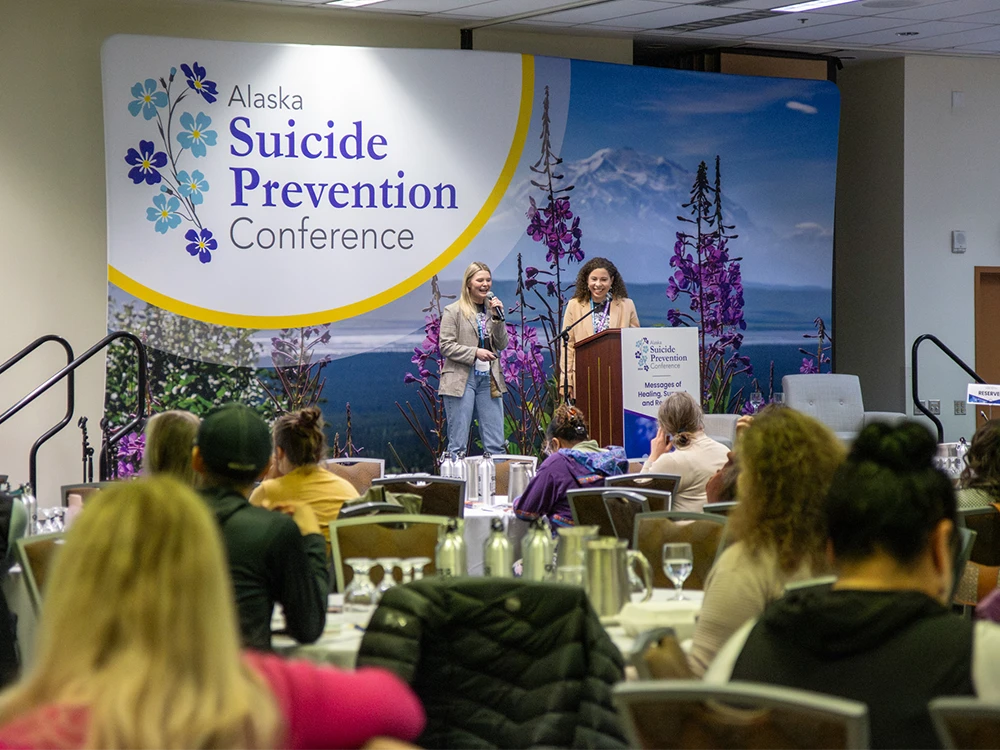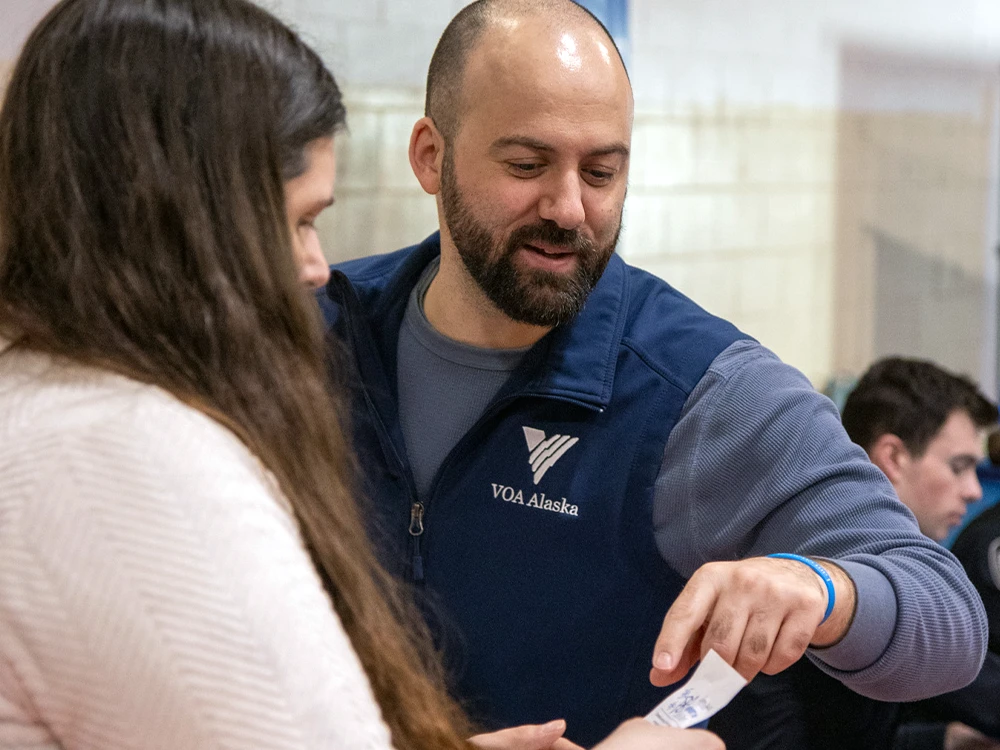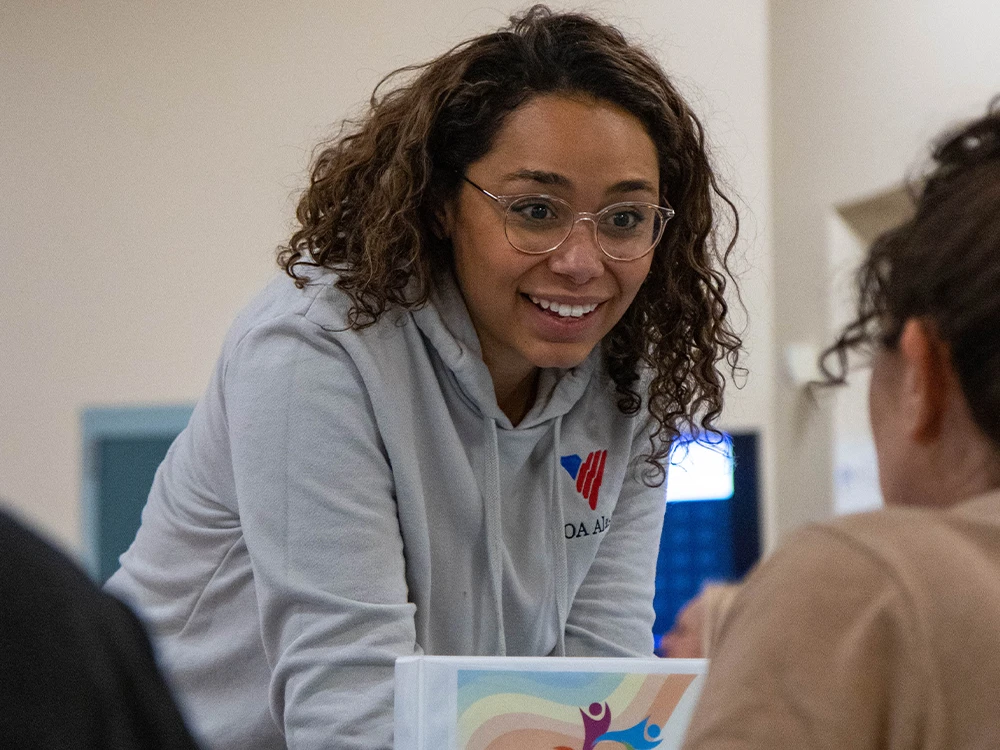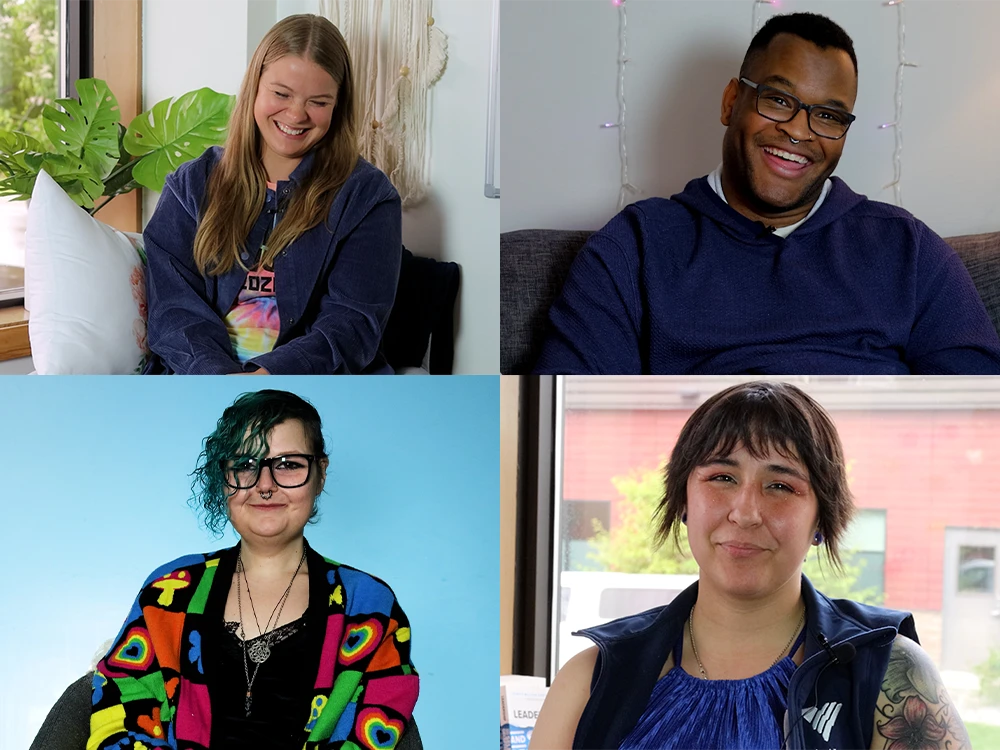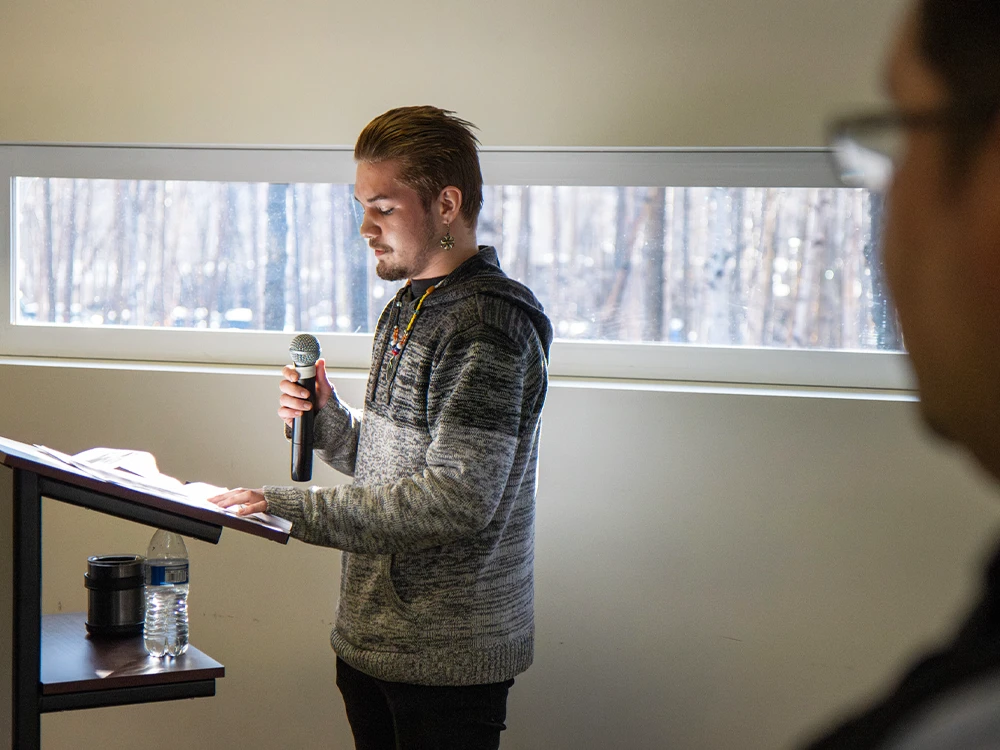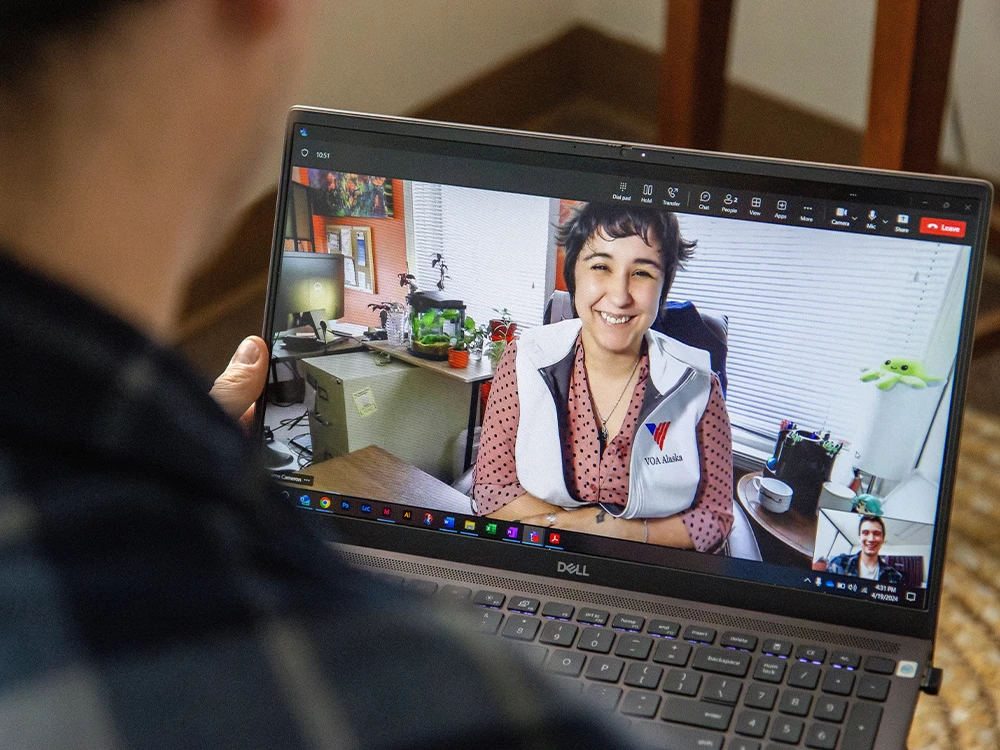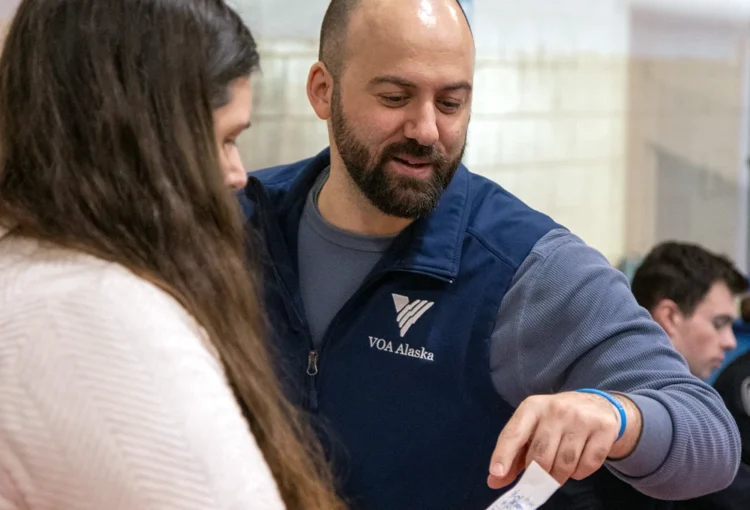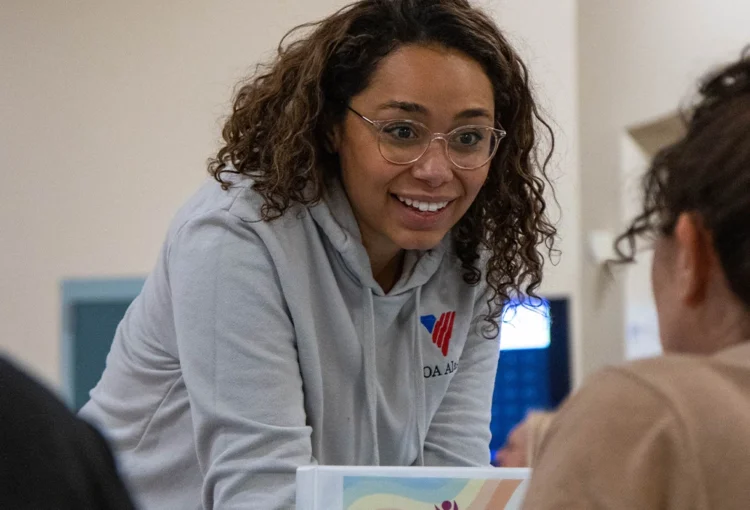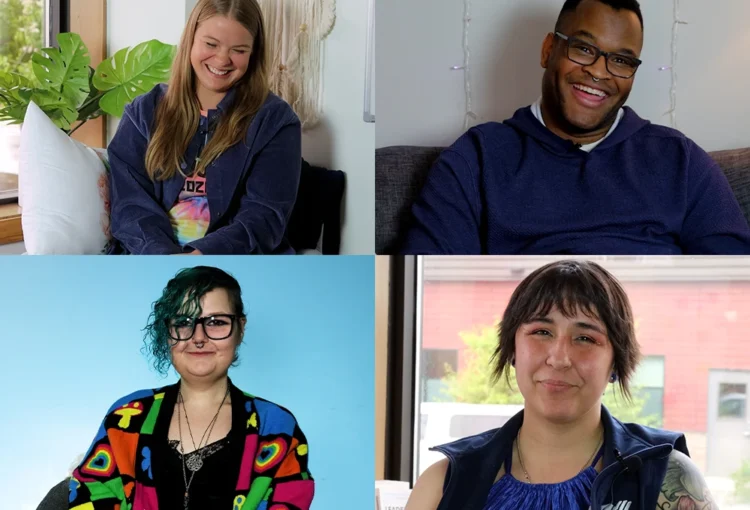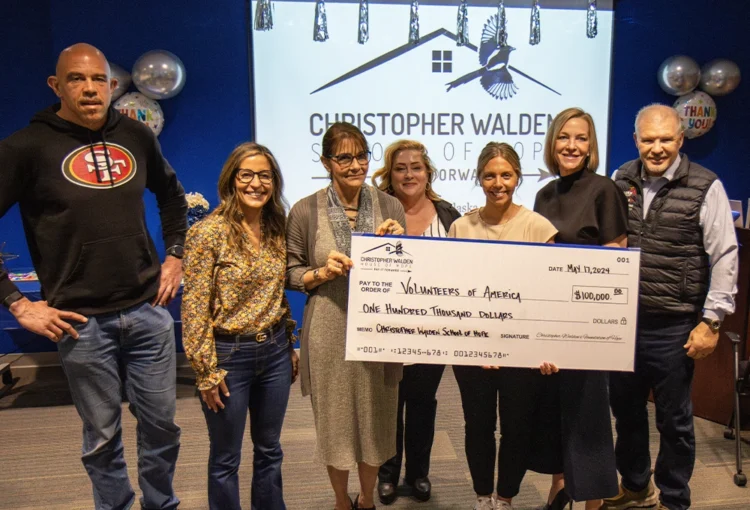Below is VOA Alaska’s May 2024 Community Newsletter. To receive this newsletter and other updates directly to your inbox, sign up here.
“Good.” How often have you said this in response to someone asking, “how are you?” How often have you said it when you were not actually “good?” It’s become the default answer to cashiers, Uber drivers, and other strangers asking how our day is going. But we also say it in situations with loved ones where we should be encouraged to speak openly and truthfully.
Now picture yourself asking “How are you?” to a youth. When they say “good,” “fine,” or “okay,” how do we know if they’re following the script our culture has normalized? What if we’ve seen changes to their behavior or know they’ve recently experienced challenges?
May is Mental Health Awareness Month, and with the end of school and the start of summer, it’s the perfect time to reflect on how we’re reducing the stigma of talking about our feelings and asking for help with the next generation.
Below are some alternatives for asking how a young person is feeling. These may be especially helpful for children who are still learning the words to describe their emotions.
- “I’ve noticed you’ve seemed down lately. What’s on your mind?”
- “If you could quote your thoughts, what would they say?”
- “These things are weird to talk about sometimes, but I’m really interested in your experience. Can you share what it’s like to be you right now?”
- “I know we all feel and think so much inside but are not always comfortable letting it out. What do you think and feel that you don’t think people know about?”
- “I’m here to listen and understand, no matter what.”
Remember, asking these questions is just the beginning. It’s our role as adults to model healthy social connections and boundaries consistently. Like any skill, with practice, it becomes easier for both the adult and the child to create a safe space for the discomfort of opening up about thoughts and feelings.
If a young person in your life is struggling and you’re unsure how to support them, remember that help is available. Our Rapid Response team offers crisis intervention for youth and free behavioral health consultations for caregivers and youth-serving professionals. Find support today by calling 907-279-9640.
Introducing the Christopher Walden School of Hope!
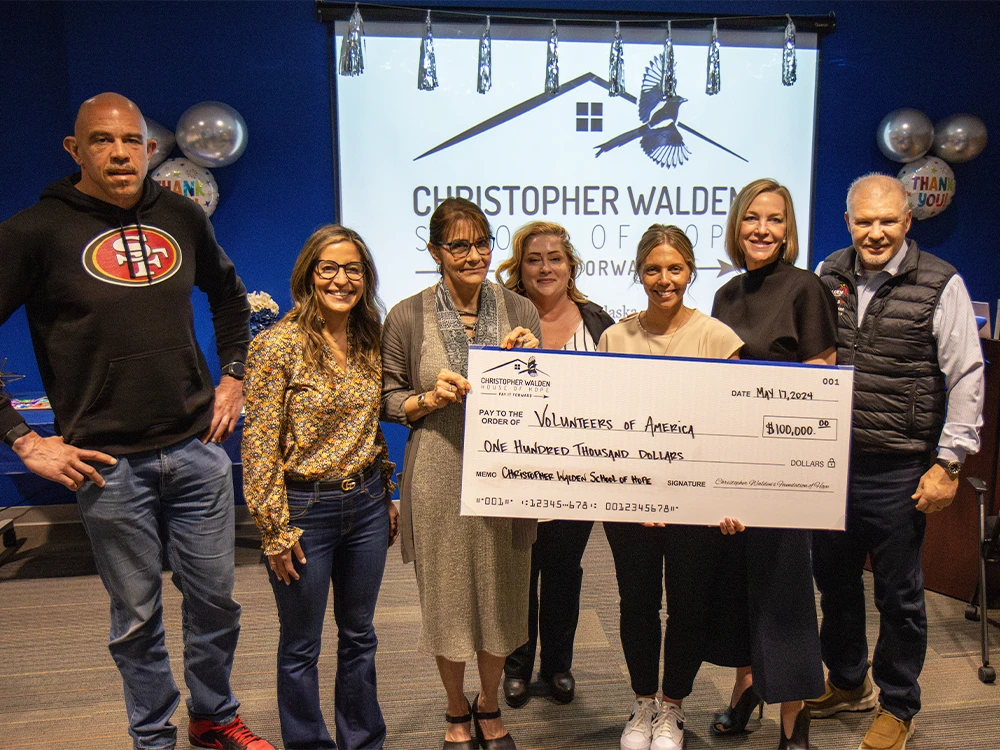
Last week, VOA Alaska and the Christopher Walden House of Hope celebrated their new partnership and a generous $100,000 gift during a renaming ceremony for VOA’s Day Treatment Program, now known as the Christopher Walden School of Hope.
“We are incredibly honored for this partnership and to honor Christopher’s memory in the work that we do here at VOA. Most importantly, it is an opportunity for the kids that we serve to find hope and an opportunity to really lean into the limitless potential that we all know that they have,” said Julia Luey, President and CEO of VOA Alaska.
VOA’s CEO Meets the U.S. Surgeon General
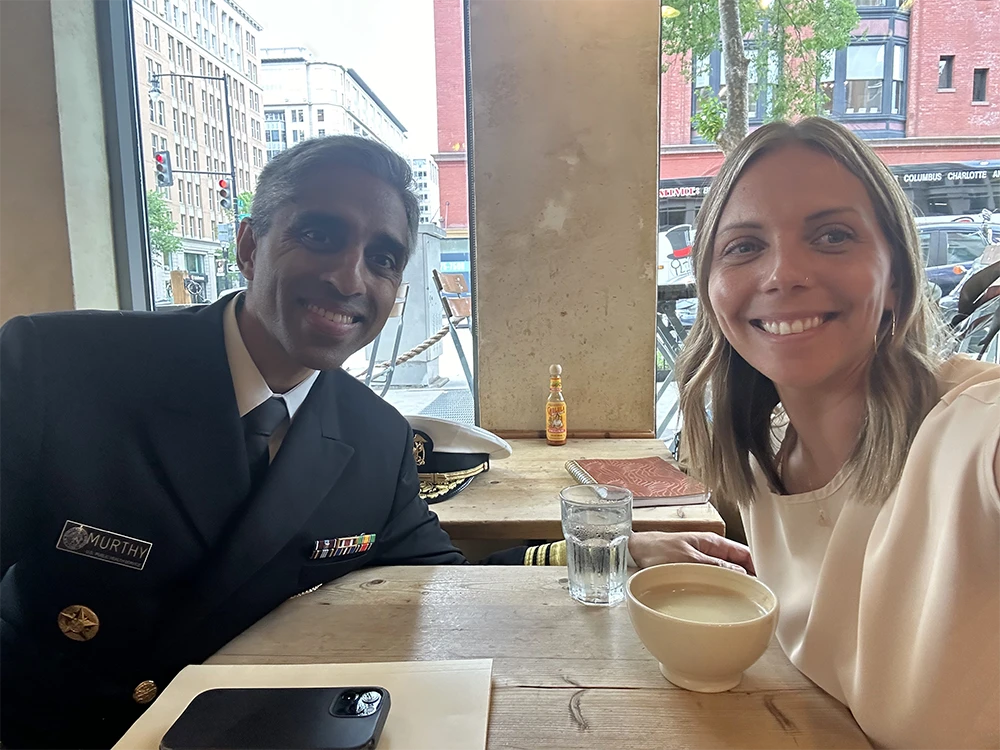

After meeting with Alaska’s Congressional Delegation in Washington, DC, earlier this month, CEO Julia Luey had the honor of meeting U.S. Surgeon General Dr. Vivek Murthy. The two healthcare leaders discussed the youth mental health crisis in Alaska and avenues to raise awareness to enact change.
As the only youth residential substance use treatment provider in Alaska currently, Dr. Murthy offered his genuine support and appreciation of VOA’s impact. We are so thankful for him finding the time to meet with his busy schedule. His unwavering dedication and leadership in improving the lives of our country’s youth is monumental.
Dr. Murthy’s 2021 Advisory on Protecting Youth Mental Health has served as the framework for expanding VOA Alaska’s services over the past few years.
The VOA Alaska Review: New Video Series!
For Mental Health Awareness Month, we reviewed clips from popular movies that showcase youth mental health challenges. Watch as Jamie Elkhill, Vice President of Youth and Transition Aged Youth Services, breaks down clips from The Sixth Sense, Inside Out, and It’s Kind of a Funny Story.

